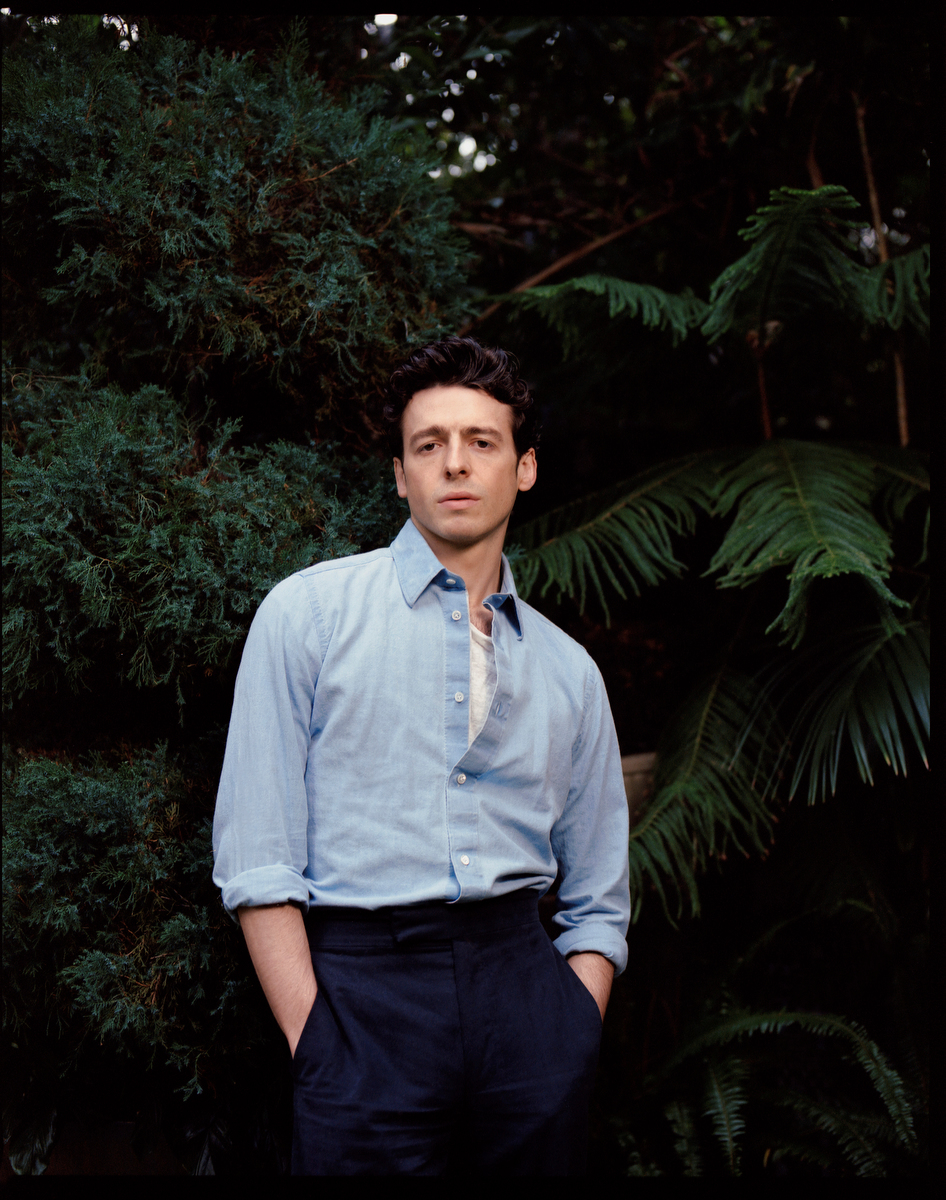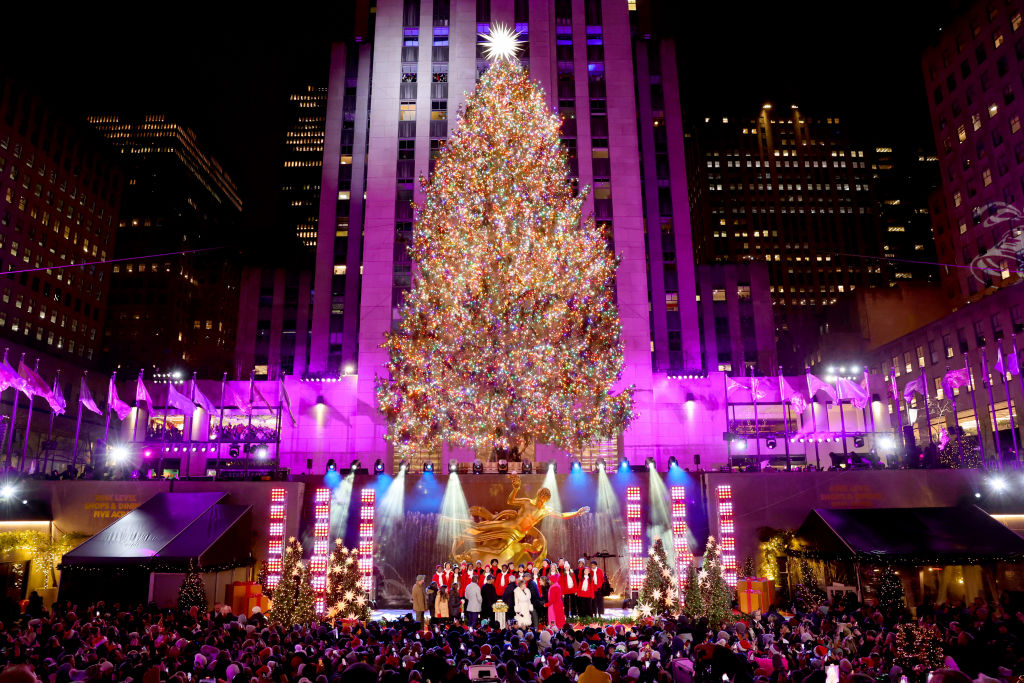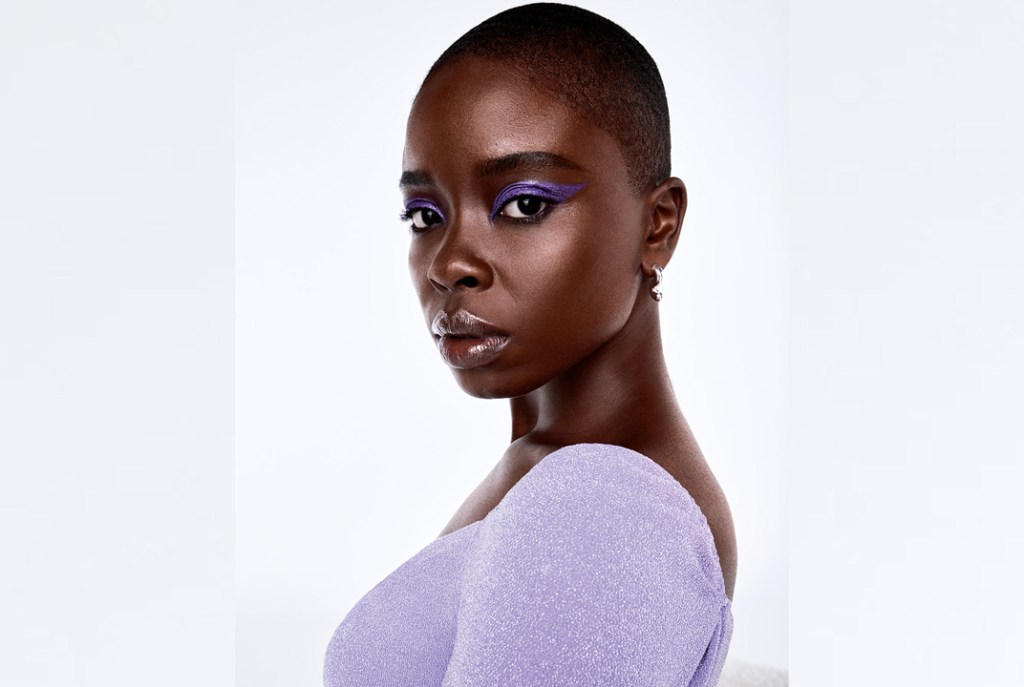Anthony Boyle has a theory.
“I think I’ve got a face that just looks like it can’t comprehend the internet,” says the Irish actor. “I never get cast in anything after the ’60s.”
This spring, Boyle stars in two Apple TV+ series chronicling American history. In the World War II ensemble drama “Masters of the Air,” he stars as Major Harry Crosby, a navigator for the 100th Bomb Group, and in “Manhunt,” he stars as John Wilkes Booth, the stage actor who assassinated Abraham Lincoln in 1865.
“I was terrible at history at school, but I keep playing real people from the past,” says Boyle.
The Belfast-based actor was traveling between time zones with his costars in the lead-up to the premiere of the first episode of “Masters of the Air” in late January. After a short trip to New York, Boyle was headed to Boston to host a screening for the real-life family of his character, which would be followed by a trip to the Pentagon in Washington, D.C.

Boyle had met Crosby’s family a few weeks earlier at the show’s L.A. premiere. “Afterward, one of his sons came to me and said, ‘You know, before we saw it, they said to us, ‘don’t expect to see your father on screen,’” says Boyle. “And he shook my hand and said, ‘I feel like we’ve got dad back.’ I thought, you know what — if the critics don’t like it, then I say, whatever. That meant the world to me. I felt like a million bucks.”
The critics have overwhelmingly lauded the series, describing it as “beautifully rendered” (Variety) and “exhilarating and rousingly inspirational” (Hollywood Reporter). Most tip their hat to the massive scale of the show, which was produced by Hollywood heavyweights Steven Spielberg and Tom Hanks, and serves as a companion to “Greyhound” and “Band of Brothers.”
“You could feel it from the ground up that they’re sort of omnipresent, how much care that they put into these things,” says Boyle of the creative team. “Tom Hanks was great personally with advice about not bleeding into solemnity,” he adds. “Because when you speak to these lads [soldiers], they don’t view themselves as heroes — they view themselves as they just went and did the job.”
In the leadup to filming, Boyle and the rest of the cast, which includes Austin Butler, Callum Turner and Barry Keoghan, went through boot camp. Boyle credits the experience for helping put them in the mindset of young soldiers preparing for war. “We had to really muck together,” says Boyle.
“Seventy-seven percent of the men that went up in the planes didn’t come back. It’s staggering what those men went through,” he adds. “I spoke to a soldier before I started filming and he said, ‘have you ever tasted fear? It tastes like metal.’”

The cast filmed their in-flight scenes in replica B-17 bomber planes attached to electronic gimbals and surrounded by video screens, which simulated a realistic experience. “We weren’t just pretending a plane was coming towards us, it would actually start swelling in the distance and get bigger and bigger and bigger until it was right on top of you,” says Boyle.
“Some of the action sequences in this are mind blowing,” he adds. “But then there’s also really quiet, beautiful moments of what was happening to the men when they got out of the planes; what was happening to their love life and their interpersonal relationships. So it dives into the big epic scale, but also the minutiae of people’s lives.”
In March, Boyle will go further back in time in “Manhunt,” which chronicles the immediate aftermath of Lincoln’s assassination and search for his killer — Booth, portrayed by Boyle.
“I had to learn a lot about American history there. I had no idea that he was one of the most famous actors of his time,” says Boyle. “After he killed Lincoln, he jumped onstage, whipped out a blade and said, ‘Sic semper tyrannis,’ which translates to ‘thus always to tyrants.’” The saying has been attributed to one of the killers of Julius Caesar, also the namesake of Booth’s father. Booth had starred in a production of the Shakespeare play several months earlier. “It’s like he thought he was living in a play.”


Boyle is having no trouble keeping fact and fiction straight for himself. “I’ve always been good at separating myself from the role,” he says, adding that he did keep up the American accent throughout production. “If you’re in the middle of Savannah and everyone’s filming this scene in America 1865, and then suddenly you hear an Irish accent — ‘oh, what’s the craic?’ — it would take everyone else out of it,” he says.
Boyle, who was “thrown out of school” when he was 16, got his start in small drama productions before studying at the Royal Welsh College of Music and Drama. Afterward, he originated the role of Scorpius Malfoy in “Harry Potter and the Cursed Child,” going on to win an Olivier award and Tony nomination for best supporting actor.
Well before then, one of his earliest gigs was a ghost tour, which involved hiding in the back of a Tesco store and waiting for his cue. His role? An 18th-century Irish rebel commander.
“A woman would go, ‘and on a dark and stormy night, you can still see and hear…’ and I would come out with a noose around my neck and a black bag over me and I’d say ‘I’m the ghost of Henry Joy McCracken,’” says Boyle. “And one day I was doing it and a girl walked past like, ‘no you’re not — you’re Anthony Boyle.’”




